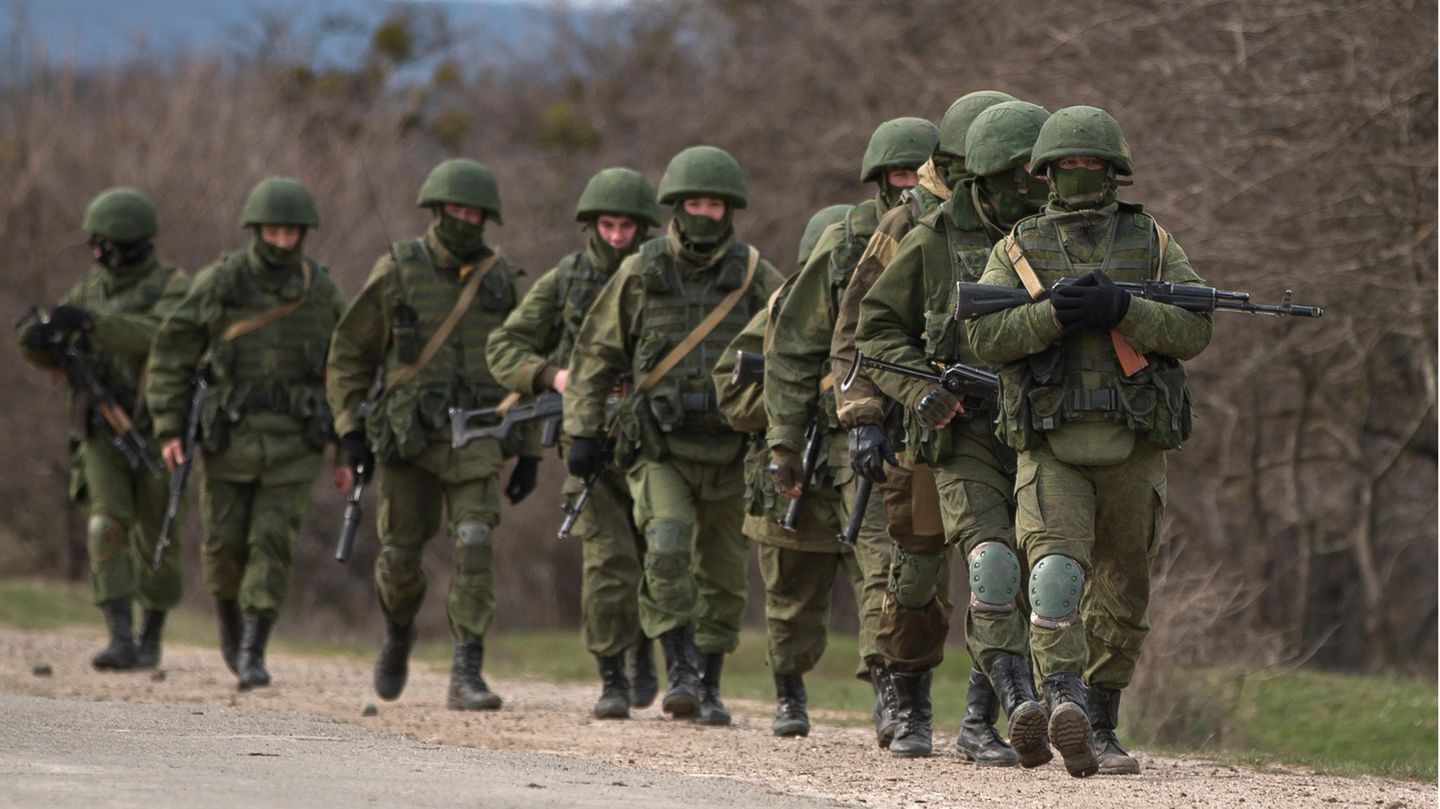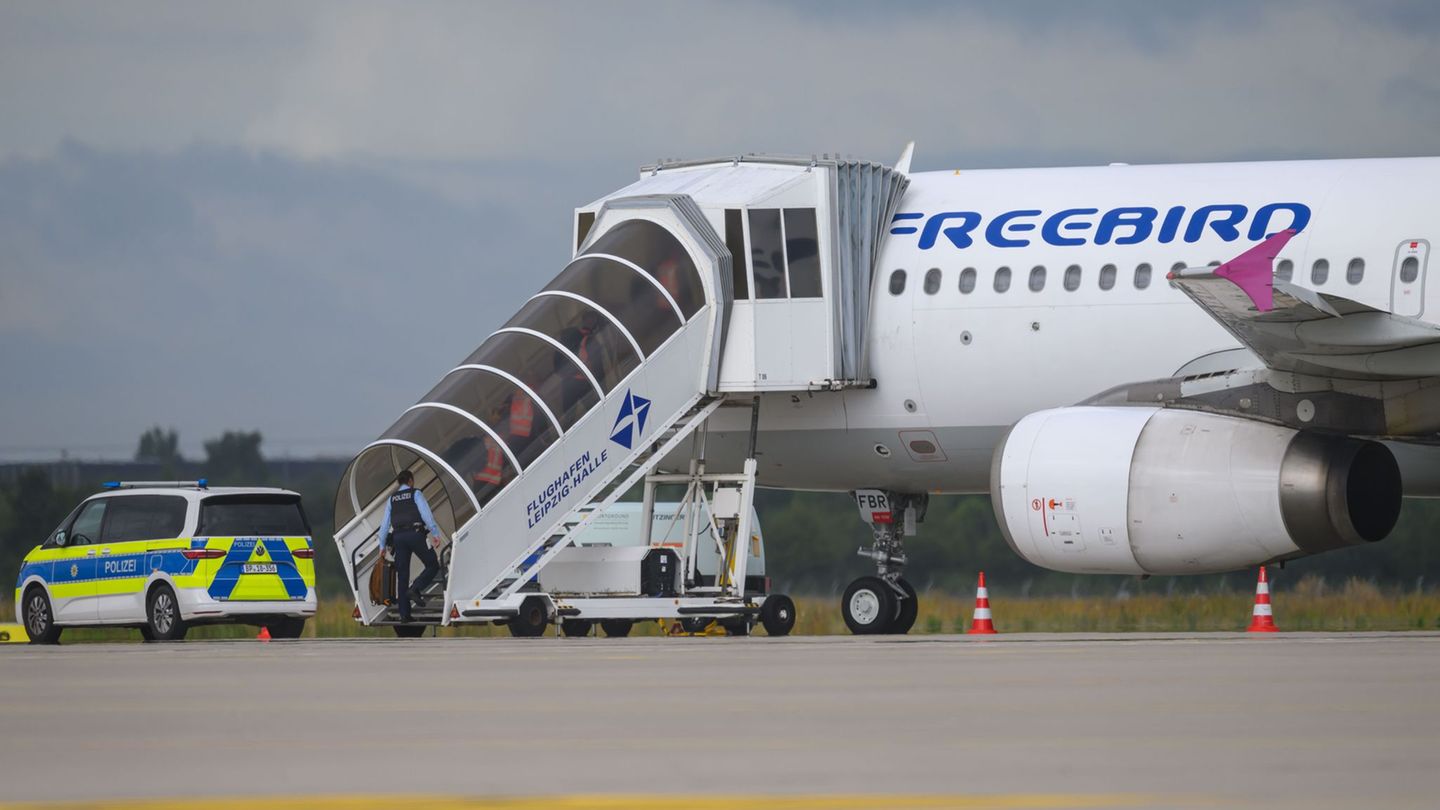Russia had announced that it would partially withdraw its troops from Ukraine. However, that is no reason for hope. Despite this, attacks on Ukrainian cities continue. So what did Russia want to achieve with the promise?
In the night from Tuesday to Wednesday, the sirens wailed again in many places in Ukraine. Russian bombs fell primarily over the city of Chernihiv. The extent of the attack finally became clear during daylight: According to the governor Vyacheslav Tschaus, the civilian infrastructure was destroyed in the attack. In addition, the city with a population of 280,000 is still without electricity and water. A similar thing happened in Kyiv. “In the last 24 hours, the Russians have 30 times bombed inhabited areas and civilian infrastructure in the Kyiv region,” said the region’s governor Oleksandr Pavlyuk. The suburb of Irpin, which according to Ukrainian sources was “liberated” by Russian troops on Monday evening, was hardest hit.
The attacks are sobering. Shortly before, Russia had announced that it would at least partially withdraw its troops. It should be a sign of accommodation. Ukrainian President Volodymyr Zelenskyy spoke of “positive” signals, but at the same time the promise made by Moscow was viewed with skepticism in Kyiv.
“The so-called ‘troop withdrawal’ is probably a rotation of individual units aimed at deceiving the military command of the Ukrainian armed forces,” the Ukrainian general staff suspected on Tuesday. After the bombing, the adviser to the Ukrainian interior minister, Vadym Denysenko, was also certain: “Unfortunately, at the moment it cannot be said that the Russians are reducing the intensity of hostilities in the direction of Kyiv and Chernihiv.”
Ukrainian ambassador: Putin wants to “mislead”
According to a situation report by the Ukrainian military leadership, the military has withdrawn some units from Kyiv and Chernihiv. However, this is intended to create a false image of the allegedly discontinued plan to encircle Kiev. There are indications that these units will be deployed elsewhere in eastern Ukraine.
The Ukrainian ambassador in Berlin, Andriy Melnyk, also dismissed the Russian announcement as a “deceptive maneuver”. “We believe that this ‘conciliatory’ rhetoric from Moscow is nothing more than bluff and smokescreen to distract from the Kremlin’s military embarrassment in Ukraine,” Melnyk told the newspapers of the Funke media group (Wednesday editions).
“On the other hand, Putin is also concerned today with misleading the West – including Germany,” he continued. It’s about feigning a desire for peace and fooling the West into believing that Ukraine can defend itself without support. “Russia will use this time to regroup its forces, send in new conscripts and secure logistical supplies.”
Pentagon and London expect big offensive
The West was also skeptical. Pentagon spokesman John Kirby said it has only been observed that “a very small number” of Russian troops are moving north of Kyiv away from the Ukrainian capital. “We believe this is a repositioning, not a withdrawal, and that we should all be prepared to anticipate a major offensive against other parts of Ukraine.” Rockets could continue to be fired at Kiev: “The threat to Kyiv is not over.” It is also possible that the soldiers would only be withdrawn there to be deployed in another part of Ukraine, such as the contested eastern Donbass region.
According to estimates by British secret services, some Russian units withdrew to Belarus and Russia after suffering heavy losses in order to organize supplies and reposition themselves. It is expected that Moscow will compensate for its weakened combat strength on the ground with increased rocket attacks.
Nevertheless, British military reconnaissance considers the Russian offensive to encircle the Ukrainian capital Kyiv as a failure. This was announced on Tuesday evening from an update by the British Ministry of Defense, citing intelligence information. In addition, the announcement by Russia that it would reduce military pressure on Kyiv and reports of Russian troops withdrawing suggested that Russia had lost its initiative in the region.
British military experts now considered it “highly likely” that Russia would shift its combat capability from northern Ukraine to the south-east of the country. The offensive in the Luhansk and Donetsk regions should now be stepped up there.
Ukraine also expects further attacks
“The Russian army still has great potential to continue attacks on our state,” Zelenskyy said in a video message. That is why Ukraine will not reduce its defense efforts. Nor should there be any lifting of sanctions against Russia. This “can only be considered when the war is over and we get back what is ours”. Zelenskyy described the defense of Ukraine as “our number one task”. Only on this basis can negotiations with Russia continue. “The enemy is still on our territory.” The reality is that Ukrainian cities will continue to be besieged and shelled. Therefore, the Ukrainian armed forces are “the only guarantee of our survival,” Zelenskyy said. “Ukrainians are not naive.”
Ambassador Melnyk assured that Russian President Vladimir Putin has not given up on his main goal of “eliminating Ukrainian statehood and capturing or destroying Kyiv”. He again spoke out in favor of tightening sanctions against Russia. “Above all, the moratorium on energy imports from Russia should be introduced immediately. The flow of money – around one billion euros a day – into Putin’s war chest must be drained to stop the bloodshed.”
Meanwhile, the US armed forces are moving more combat aircraft, transport aircraft and soldiers to Eastern Europe. A unit of around 200 US Marines had been deployed to Lithuania after maneuvers in Norway, Defense Department spokesman John Kirby said. In addition, ten “F/A-18 Hornet” combat aircraft and “a few” C-130 Hercules transport aircraft with around 200 associated soldiers would be brought to Eastern Europe from the USA.
Source: Stern
David William is a talented author who has made a name for himself in the world of writing. He is a professional author who writes on a wide range of topics, from general interest to opinion news. David is currently working as a writer at 24 hours worlds where he brings his unique perspective and in-depth research to his articles, making them both informative and engaging.




